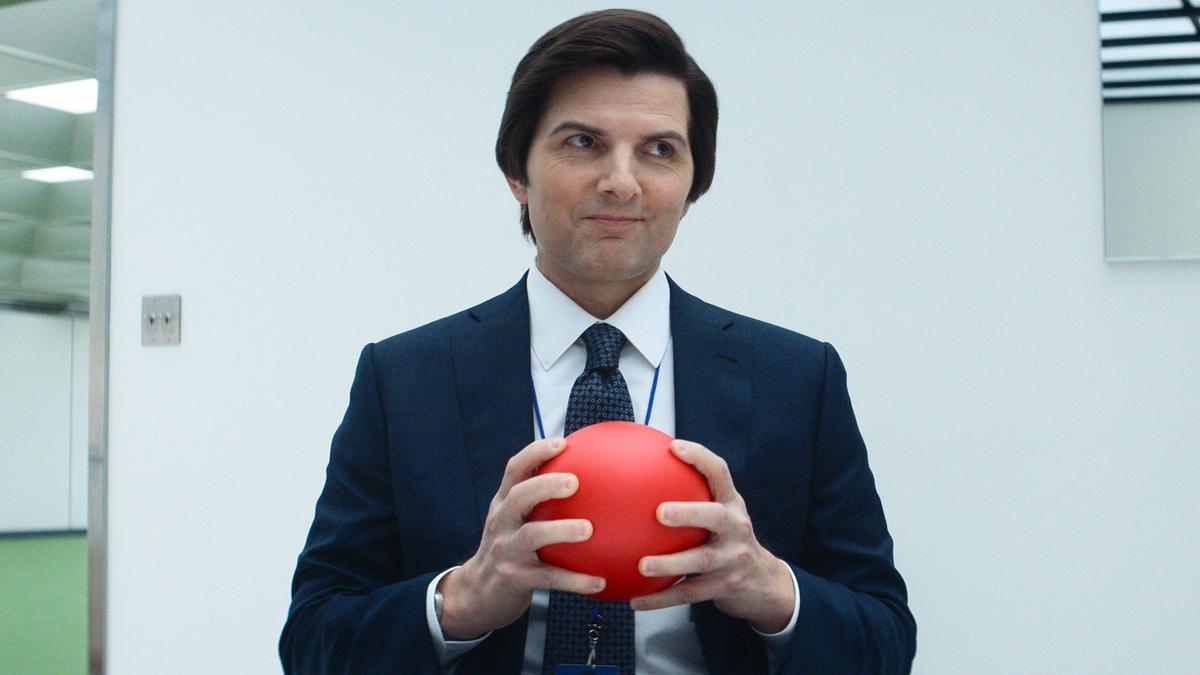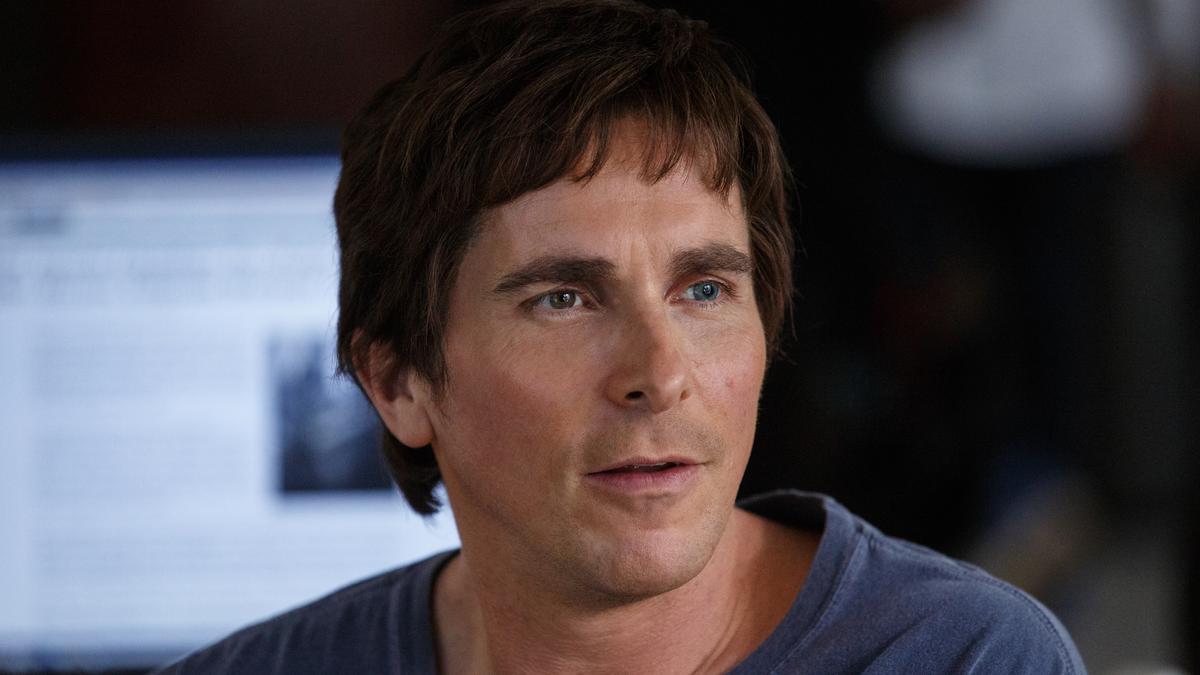
Returning to the fluorescent purgatory of Severance after three long years required a moment of corporate recalibration to say the least. Dan Erickson’s much-anticipated sophomore effort picks up where the first season’s gripping cliffhanger left off, delivering all the hallmarks of Lumon’s abluted horrors: the cavernous, symmetrical corridors stretching into a white oblivion, the low hum of dread under the guise of “macrodata refinement,” and the haunting sense that you’ve signed away something irreplaceable.
In its first six episodes, the new season wastes no time peeling back the layers of its hermetically sealed world — both the machinery that runs it and the souls trapped within it. The themes remain irresistible: identity, autonomy, corporate dehumanisation, and the ways we willingly compartmentalise ourselves to survive. But as the show pushes further into these ideas, a question lingers: Can you sustain a show whose central conceit already felt perfected and whole?
Season 2 begins with the aftermath of rebellion. The ‘innies’ of Mark (Adam Scott), Helly (Britt Lower), Irving (John Turturro), and Dylan (Zach Cherry) have awoken to the unsettling truths of their ‘outie’ lives, cracking open a Pandora’s box of Lumon’s more sinister machinations.
Mark, still reeling from the revelation that his supposedly deceased wife is alive and working at Lumon, finds himself spiraling in both worlds — grief-stricken and guilt-ridden as an outie, desperate and determined as an innie. Already a highlight of the first season, the aloofness behind Scott’s eyes and subtle shifts in his posture, continue to anchor the series, as he delivers a slow-motion implosion of a performance.
Helly’s arc takes an especially biting turn as her outie, Helena Eagan, is revealed to be not just complicit but central to Lumon’s oppressive hierarchy. Lower walks an imperceptibly thin line between Helly and Helena, and crafts a duality that feels entirely convincing.
A still from ‘Severance’ Season 2
| Photo Credit:
Apple TV
Meanwhile, Irving’s story explores the desolation of his outie life, in contrast to his innie’s unconsummated romance with Christopher Walken’s Burt. It’s thanks in no small part to Turturro’s brilliance that both versions of Irving feel utterly distinct yet inextricably linked, and that the tenderness of Burt and Irving’s relationship remains one of the show’s most affecting threads.
Zach Cherry’s Dylan develops more layers, as a man caught between two realities and belonging fully to neither. And then there’s Milchick, played with disconcerting precision by a brilliant Tramell Tillman, who steps further into the spotlight this season as the corporate enforcer desperately trying to keep the unraveling threads of Lumon’s control in place.
Visually, Severance remains one of the most compelling shows on television, turning the banalities of corporate life into a (not so) dystopian nightmare. From the disorienting minimalism of Lumon’s endless hallways to the surreal oddities lurking just beyond its sterile glow — production designer Jeremy Hindle’s work continues to stun. Having directed three of the first six episodes, Bes Stiller’s stalking lens leans heavily on contrast: claustrophobic close-ups that trap characters in their own torment, followed by wide shots that emphasise their insignificance within Lumon’s synthetic sprawl.
A still from ‘Severance’ Season 2
| Photo Credit:
Apple TV
Erickson seems driven about broadening the expanding mythology of Lumon and its severed floor, unravelling its unnerving experiments, trotting out shadowy new antagonists, and weaving an even knottier tapestry of innies and outies. Yet, as the show broadens its thematic horizons, delving deeper into Lumon’s conniving ulterior motivations and teasing answers to its myriad mysteries, it does risk overextending itself with the overwhelming number of ideas vying for attention.
Where this season redeems itself rather gloriously, is in its intimate portrayal of the emotional wreckage left in severance’s wake. The ethical quagmire of splitting a consciousness feels devastatingly personal: Helly grappling with the monstrous duplicity of her outie self, Irving piecing together the shattered remnants of a life he can barely fathom, Dylan gazing at a photograph of children he’ll never truly know.
Lumon’s cult-like omnipresence, its pristine offices and its unnervingly perfect geometry only reflects the intellectual stranglehold it wields over its employees. It’s a conceptual prison where thoughts are disassembled and reassembled to feed the corporate maw. Here lies Severance at its most incisive, mining the microcosm of workplace rituals to reveal a grotesque reflection of late-stage capitalism that feels simultaneously absurd and all too real.
A still from ‘Severance’ Season 2
| Photo Credit:
Apple TV
What makes Severance so effective is how little it needs to exaggerate. The infantilisation, the invasive surveillance, the oppressive positivity — none of these seem dystopic anymore. They’re extensions of corporate culture as we already know it. Lumon echoes Amazon’s efficiency-obsessed warehouses, Google’s relentless pursuit of “collaboration,” and every HR department’s empty jargon stitched together into an abominable prison-industrial complex.
If its debut was a flash of startling originality that was impossible to ignore, this follow-up opts for a more deliberate, smoldering burn. Its mysteries unravel at a pace designed to test patience, offering breadcrumbs rather than answers.
And yet, that refusal to resolve is part of the show’s peculiar brilliance. The not-knowing has now become an addictive loop that mirrors the experience of the characters themselves. Isn’t watching Severance a kind of severance in itself? A suspension of reality, a willing surrender to a second consciousness where we exist in two worlds at once — disturbed and hungry for more.
It doesn’t matter if we never fully grasp Lumon’s purpose. That’s besides the point. Severance has always been less about answers than about questions: the ones we ask of the systems that control us, the ones we fail to ask of ourselves, and the ones we’re too afraid to answer.
Severance Season 2 is streaming on Apple TV
Published – January 16, 2025 04:00 pm IST
English cinema
/
World cinema
/
television
/
reviews










